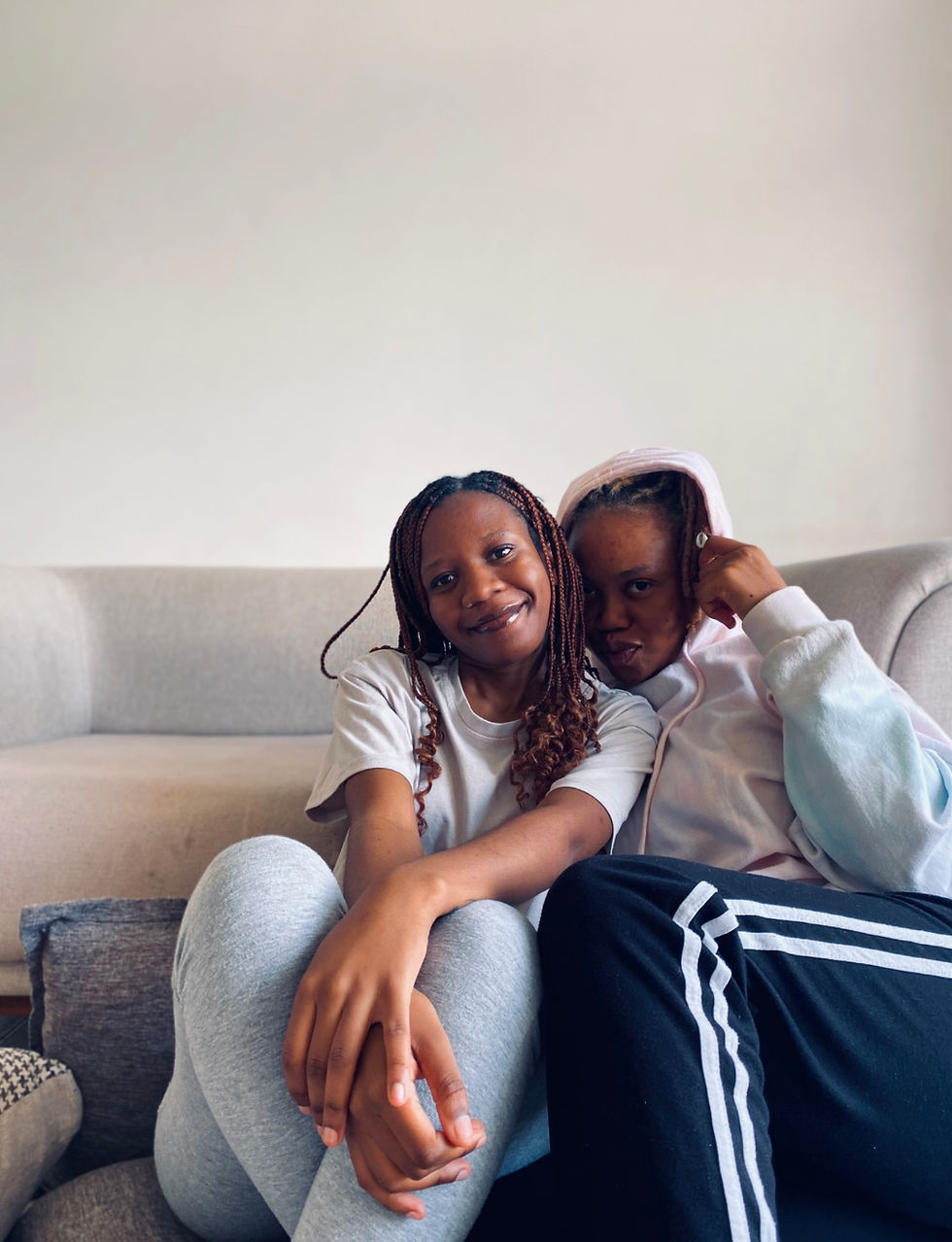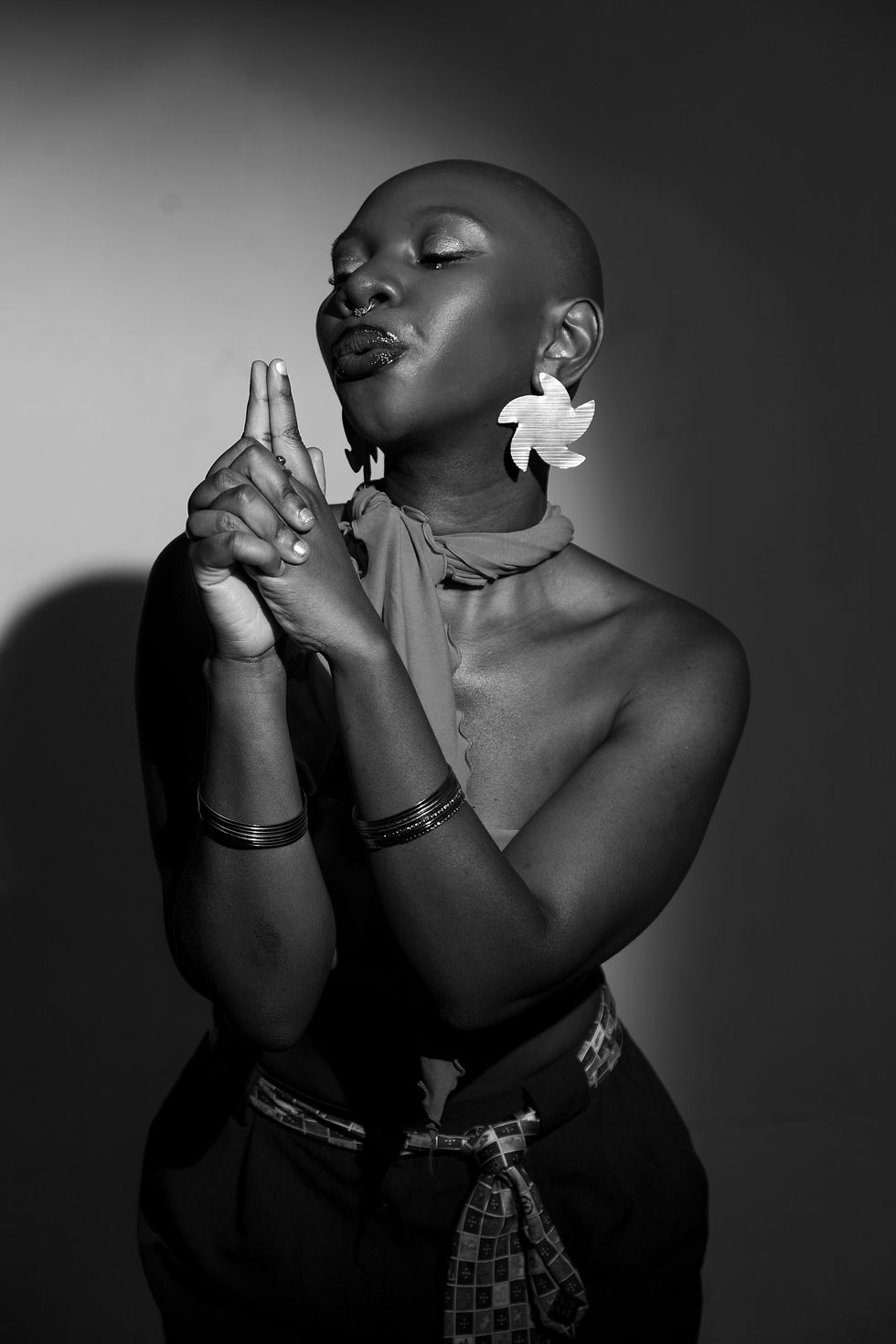Me Between the Lines
- Joshua Alston

- Jul 12, 2025
- 5 min read
[by Joshua Alston for Hearts Unfiltered, Edition II]

Hello Dear Reader,
Today, I want to explore a question that has been tingling in the farthest corners of my mind for quite some time. Why now, you may ask. Well, it seems the older I get, the more pertinent it becomes, almost inescapable, and I find the need to grapple with it to gain understanding. Is identity something we are born into that doesn’t change, does it change naturally, or do we get to choose who we are? When I reflect and dig deeper about each scenario, I see both yes and no answers. It’s the three of them together, and yet none of them entirely. Maybe some parts of identity cling to us tightly from birth like a newborn grasping its mother - our names, our lineage, our family history, our parents. Other parts are shapeshifters, ever changing with our environment, experiences, and the people we encounter. Still, some of them are a function of our choices and actions, like a painter ever adding and scraping away layers of his canvas - the career we choose, the hobbies we develop, etc.
Let’s be practical. Since I was a kid growing up in the confines of my grandparents two-bedroom apartment on Gibson street, Mamba Point and even more so when we moved to a two-bedroom house in Divine Town, Old Road, I have often felt like I am standing in a hallway, peering into rooms that never quite felt like I belong. I had to learn how to exist between two worlds: being a regular Liberian kid who could understand and relate to the basic cultural norms and experiences of others to fit in, while being my grandparents’ son who grew up away from the rest of society, shaped by Western ideals with a totally different orientation and experiences.
Honestly, I still barely know the part of my identity I was born with. My name is Joshua Lincoln Alston. My last name, ‘Alston’, I carry from my grandfather, a US Army veteran who raised me. I sometimes even forget that I have a traditional name: Koso Cheanway. Shocking, I know. But should I claim a name whose meaning I do not know, and will never understand why I was given that name? These fragments of me are part of something larger, but I often feel like I am only a reflection of the parts that raised me and the parts I am comfortable acknowledging. This is probably why I have spent so much time wondering, “Do I really know all of me?”. And more specifically, “Where do I belong?”
I have been an orphan since I was 4. However, my grandparents never made me feel like I was one, and always shielded me from this harsh reality. Guess what? By 18, both my grandparents had died, and for the first time in my life, I truly felt and could consciously comprehend what being an orphan meant. It was like I became an orphan for the second time. This part of my identity I had been shielded from, came rushing in, and I did not know how to handle it. My biggest fear was that this would be the only identity people would associate with me, therefore, I distanced myself from it internally and never really talked about it. At least I would not be labeled as a ‘victim. Remember when I asked earlier if we could choose our identity?
The question of identity and finding myself has shown itself in so many different ways and in many aspects of my life. I am Catholic - a fact I am actually happy about - yet I have often questioned if I want to be identified with any Christian denomination. Am I religious or just a believer? I am Liberian, but I always avoid claiming to be a member of any tribe. I usually say that I am from Monrovia, but it’s customary to be identified with the tribe of your father and the county or village he came from. However, I know very little about my father and where he came from. How can I identify with a place and tribe I have no emotional connection or attachment to? Why should I? It’s frustrating when my friends and others insist I am from this specific tribe or place, and I constantly have to reject their assertions. Do I not get to define and choose my origins? Perhaps you may call this defiance. Maybe I am misguided. Perhaps it is because I have never felt like I belonged to that place and those people.
According to Jared Leto, “To find yourself, you must first lose yourself.”
What happens when you don’t know who the person you are losing is? What if you end up discovering the person you sought to lose?
Sometimes when I walk into rooms or when I am among people, I feel like a guest. I can understand cultural references, but a lot of them have not lived in my bones. It is like I am on stage performing a character - code switching, tailoring conversations, giving perspectives on experiences I have not had, adapting to my environment. I am pretty good at adapting. But adaptation is not belonging, it is fitting in. How much adaptation is too much adaptation? Could we be so adaptable that we end up never knowing who or where our true identity is? Can adaptation lead us to lose ourselves? Is that the price for assimilation?
There is a quiet sense of helplessness in not knowing which stories are yours to tell or what stories to tell. Are you presenting an accurate picture of who you are to the world and even yourself? These scattered pieces of yourself each have a story to tell. Can you select which pieces to keep, discard, or change? Would you be allowed to? Should you choose?
Ultimately, I have come to accept that my identity has never been static. It has always been a work in progress, a mosaic of resilience, faith, optimism, heartbreak, and longing. But maybe that’s okay. Maybe identity is not a destination, but a language—one we learn to speak over time, through trial and error. A language that evolves. I still don’t know how to fully speak my language. But I am learning. Maybe that is enough.
Between the different chapters of my journey, I have found a strange kind of freedom. I can build or renovate my identity deliberately, not by prescription but by choice. Yes, there are parts I probably can not alter and other parts I wish I could forget. I can choose what to carry forward. I can choose what to leave behind.
And maybe, just maybe, I am not lost. Perhaps, I am just becoming.
About the Contributor
Joshua is a lover of music and creative writing, especially spoken word poetry. He believes poetry and the arts in general are a language that communicates the inner workings and experiences of a person's soul. Joshua works at TRIBE, a design company using innovation at the intersection of business and education to unlock the economic potential of young people. He loves fried plantains and is interested in everything from mythology to superhero movies and fantasy.



Comments